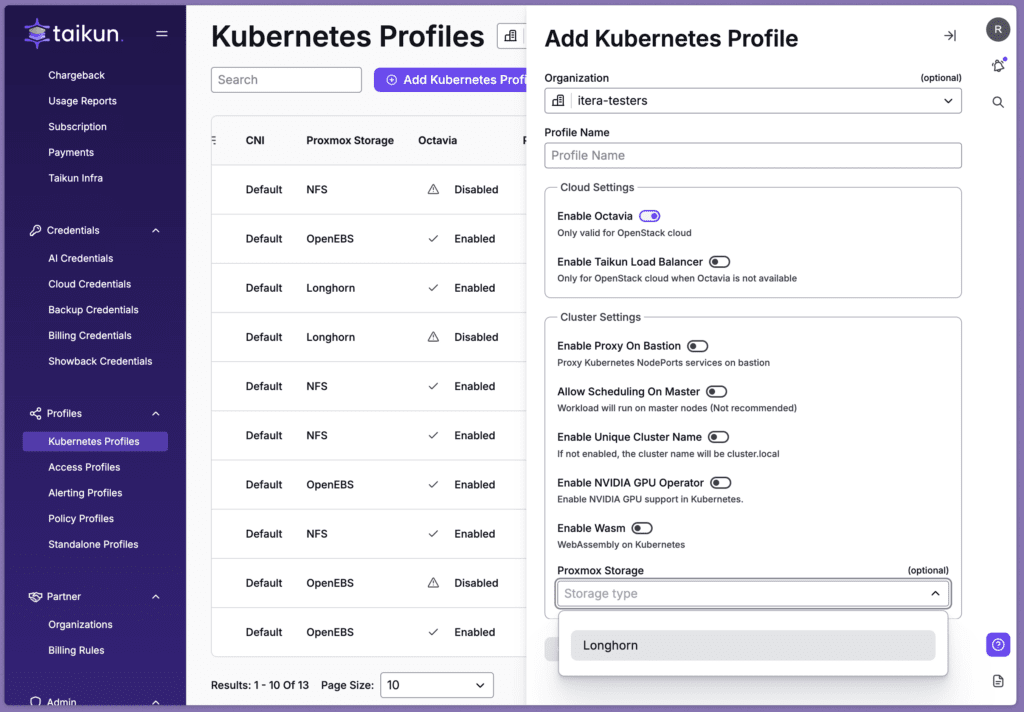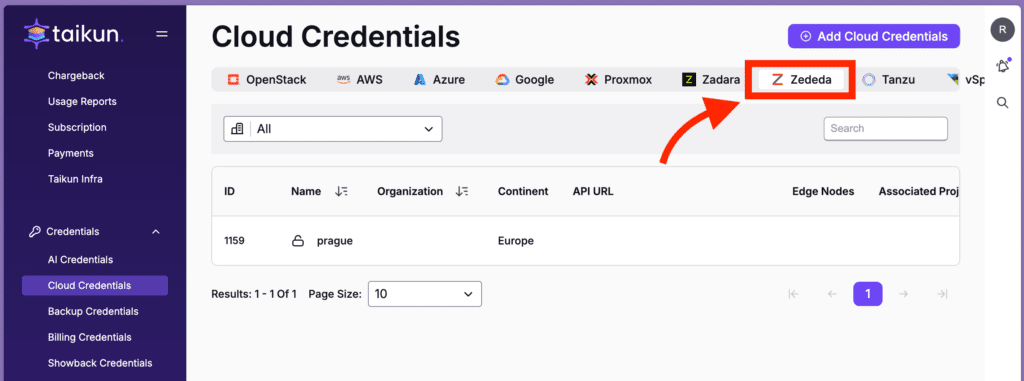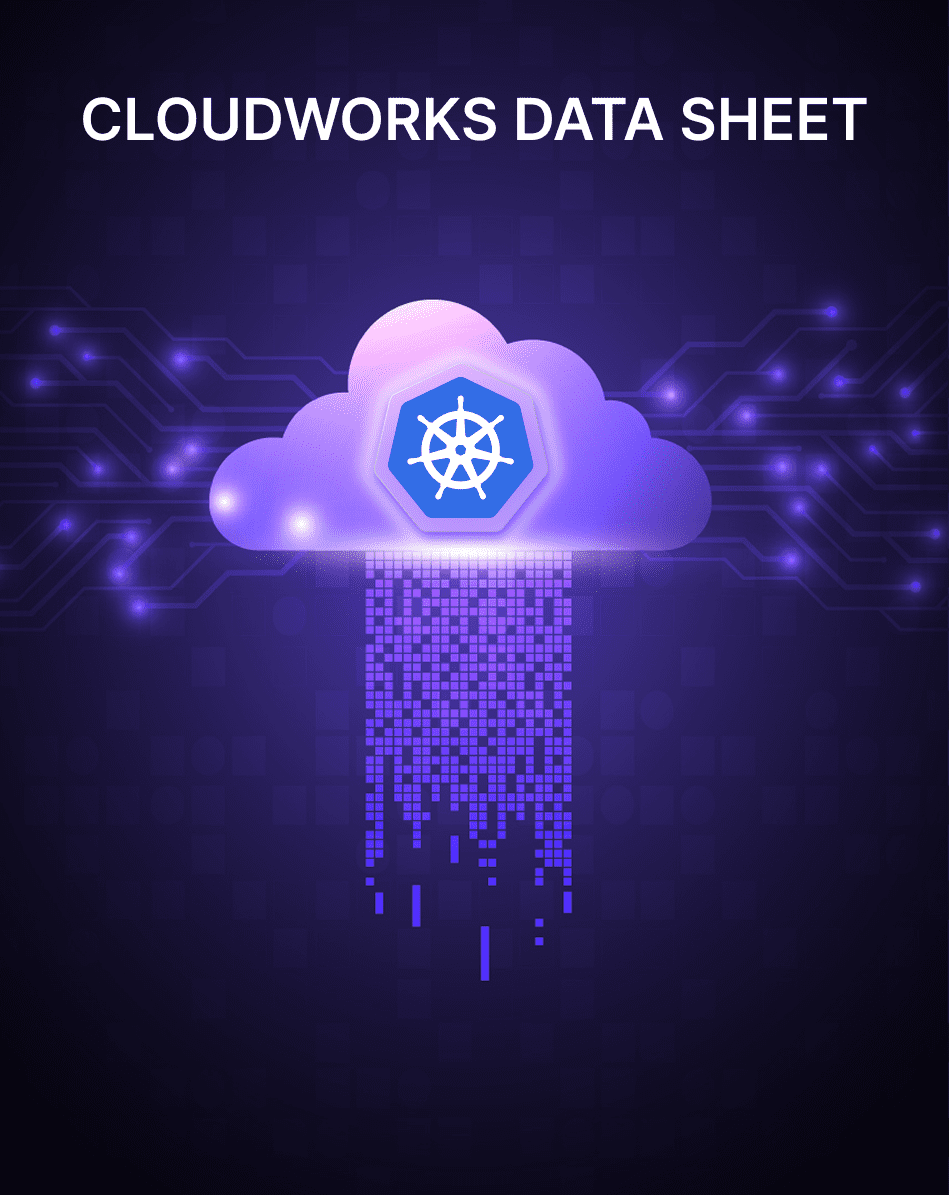Are you ready to revolutionize your Kubernetes management and cloud-native operations? Taikun is thrilled to announce our September 2024 Release, packed with cutting-edge features and integrations that empower DevOps teams and Kubernetes enthusiasts alike. This release introduces vCluster Integration, Longhorn Storage Support, and Zededa Cloud Services integration, elevating your cloud-native and edge computing capabilities to new heights.
Introducing vCluster Integration: Unlock Multi-Tenancy in Kubernetes

In the ever-evolving world of Kubernetes and cloud-native technologies, efficient resource utilization and workload isolation are paramount. With our new vCluster Integration, you can now create and manage virtual Kubernetes clusters (vClusters) nested inside your physical host clusters.
Benefits of vClusters in Taikun CloudWorks:
- Isolated Workloads for Enhanced Security: vClusters provide better isolation, supporting multi-tenancy by allowing multiple teams to operate independently within the same physical Kubernetes cluster. This minimizes conflicts and maximizes autonomy.
- Efficient Resource Utilization: Run vClusters inside host cluster namespaces. They function as separate Kubernetes clusters with their own API server, control plane, syncer, and resources. This ensures efficient utilization and scaling of your infrastructure.
- Seamless Kubernetes Integration: vClusters interact with the host cluster for resource scheduling and networking but maintain a level of abstraction to ensure operations within a virtual cluster do not directly affect the host cluster’s global state.
Learn how to set up vClusters in our User Guide.
Longhorn Storage Support for Proxmox: High Availability Storage for Kubernetes

Storage is a critical component in any Kubernetes environment, especially for stateful applications that require persistent data. We are excited to introduce Longhorn as a storage option in Taikun for the Proxmox cloud provider.
Why Choose Longhorn with Proxmox in Taikun CloudWorks?
- High Availability Storage: Longhorn provides highly available, lightweight, and reliable distributed block storage for Kubernetes, designed to run on Proxmox. It offers easy-to-manage persistent storage with built-in redundancy and automatic recovery, crucial for maintaining data integrity in cloud-native applications.
- Effortless Integration with Kubernetes: Manage your storage needs directly within Taikun. The Longhorn option in the Kubernetes profile ensures data remains secure and accessible, even during hardware failures.
- Scalability for Growing Data Needs: Longhorn’s distributed architecture ensures that storage scales with your infrastructure, providing flexibility as your data requirements grow in your Kubernetes deployments.
Discover how to integrate Longhorn with Proxmox in our Developer Documentation.
Zededa Cloud Services Integration: Edge Computing Meets Kubernetes

Edge computing is reshaping the technology landscape, and integrating edge solutions with Kubernetes is becoming essential for modern DevOps practices. We are pleased to announce support for Zededa cloud services directly through Taikun, enhancing our platform’s edge computing capabilities.
Harness the Power of Edge Computing with Zededa:
- Edge Orchestration with Kubernetes: Seamlessly manage and orchestrate edge devices and applications via Zededa cloud services through the Taikun interface. This integration provides enhanced visibility, control, and security for edge deployments, bridging the gap between cloud-native and edge computing.
- Zero-Trust Security Architecture: Leverage Zededa’s zero-trust security model to ensure secure boot processes, protect edge devices from threats, and maintain the integrity of your edge infrastructure.
- Remote Edge Device Management: Enable remote monitoring, updating, and troubleshooting of edge devices directly from Taikun, reducing the need for on-site interventions and ensuring continuous operation of edge environments.
- Scalable Edge Deployments: Easily scale edge infrastructure to accommodate growing operational demands, managing both small-scale and large-scale deployments efficiently through Taikun.
Find out more about integrating Zededa with your Kubernetes clusters in our Integration Guide.
Expose Your Applications Seamlessly Through the Bastion Load Balancer
Access to applications deployed on Kubernetes clusters often requires complex configurations. We’ve simplified external access to your applications by enabling exposure through the bastion, which acts as a load balancer.
How to Configure Application Exposure:
- Set Service Type: Configure your application’s service type to
NodePortin your Kubernetes deployment settings. - Enable Ingress: Enable ingress and specify
taikunas the ingress class name in your Kubernetes manifests. - Hostname Configuration:
- For Standard Clusters: Use a hostname in the format
name.<access-ip>.nip.io, wherenameis user-defined, and<access-ip>is the application’s access IP. - For vClusters: Use the specific vCluster hostname directly, without appending
nip.io.
- For Standard Clusters: Use a hostname in the format
This feature ensures straightforward access to your Kubernetes applications via URLs, enhancing accessibility and user experience.
Enhanced User Experience and Performance Improvements
Revamped UI/UX for Better Kubernetes Management
- Intuitive Interface for vClusters: We’ve updated the Taikun interface to accommodate vCluster management options, ensuring a seamless user experience for Kubernetes administrators.
- Improved Form Controls: All UI form controls in drawers have been enhanced for better usability and consistency, making Kubernetes cluster management more efficient.
- Streamlined Navigation: Enhanced navigation and accessibility for managing both main Kubernetes clusters and vClusters.
Advanced Informative Messaging for Kubernetes Operations
- Real-time Infrastructure Warnings and Errors: We’ve added detailed messages to promptly inform users of any Kubernetes infrastructure issues, providing clear, actionable insights for quick resolution.
Performance Enhancements Tailored for Kubernetes Workloads
- Optimized Platform Performance: We’ve fine-tuned Taikun to handle additional vCluster operations and Kubernetes workloads, ensuring smooth and efficient functionality.
Improved Disk Management for Virtual Machine Instances
- Enhanced Disk Management: Improved capabilities for allocating, resizing, and monitoring disk resources within Taikun, simplifying the process of scaling storage for virtual machines running Kubernetes nodes.
Backup and Restore Improvements for Kubernetes Clusters
- Reliable and Fast Operations: Enhanced backup and restore processes provide more reliable and faster operations, ensuring efficient data recovery for your Kubernetes clusters and bolstering your disaster recovery strategies.
Bug Fixes and Stability Improvements
- Configuration Application Issue Resolved: Fixed an issue where certain configurations were not correctly applied to newly created Kubernetes clusters.
- Platform Stability Enhancements: Addressed various minor bugs to improve overall platform stability and reliability in Kubernetes management.
Known Issues and Recommendations
Cluster Resource Overlap in Kubernetes and vClusters
- Description: Users may experience some overlap in resource limits between main Kubernetes clusters and vClusters.
- Recommendation: We advise closely monitoring resource allocations in your Kubernetes environments and adjusting as needed to prevent any conflicts. Consider leveraging Kubernetes resource quotas and limits.
vCluster Deletion Delay in Kubernetes
- Description: Deleting a vCluster may take longer than expected in some Kubernetes environments.
- Action: Our development team is actively working on optimizing this process for future releases. Meanwhile, please plan for additional time when deleting vClusters.
Stay Informed with Our Comprehensive Documentation
User Guide: Dive into detailed instructions on using and managing vClusters within Taikun in our User Guide.
Join the Cloud-Native Revolution with Taikun Cloudworks
We’re committed to empowering DevOps teams and Kubernetes professionals with tools that streamline operations and drive innovation. The new features, improvements, and integrations in this release are designed to enhance your Kubernetes management experience and support your cloud-native journey.
Your feedback is invaluable. Share your thoughts on this release and any features you’d like to see in the future. Let’s build the future of cloud-native technology together.
Stay Connected with Taikun:
- Twitter: @taikun_cloud
- LinkedIn: Taikun




